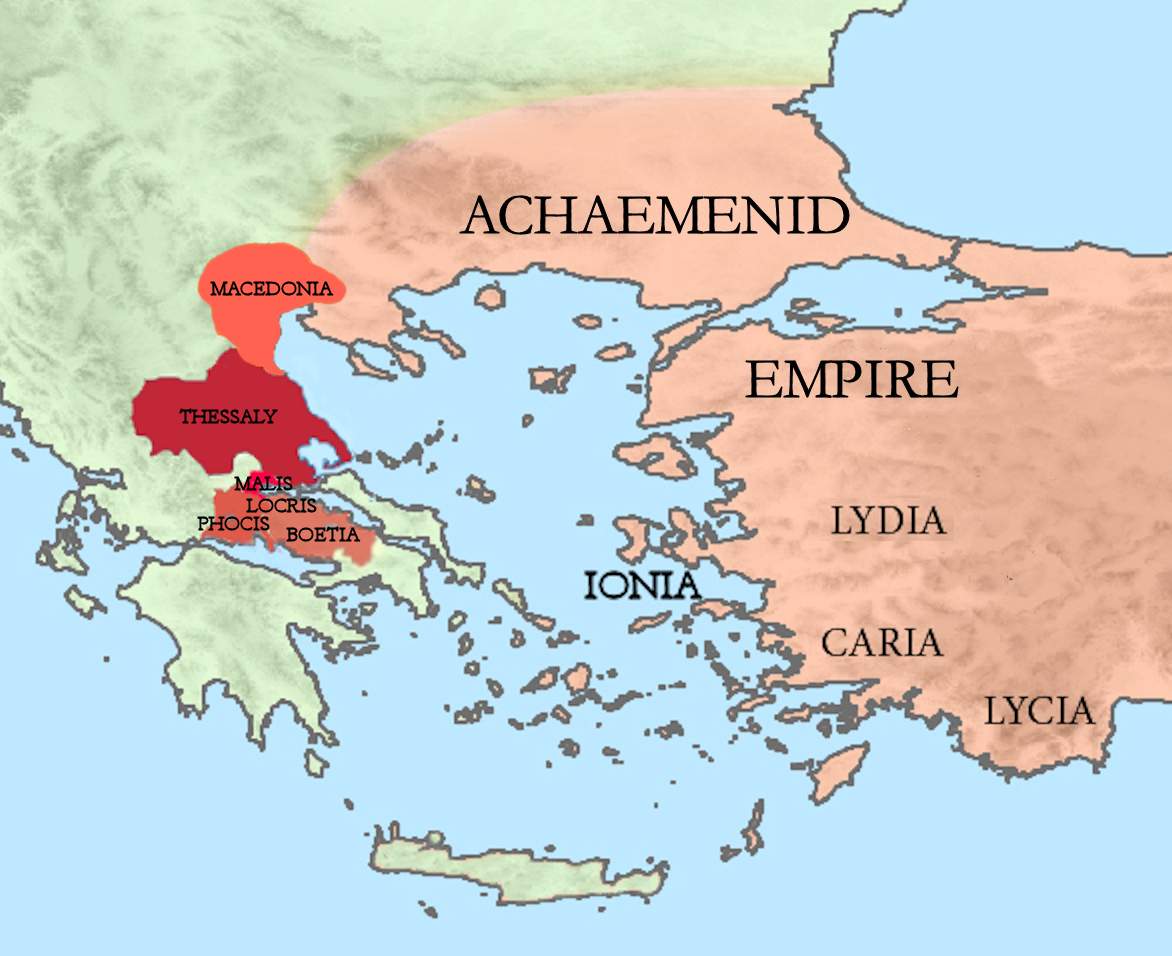|
Xerxes 1
Xerxes I ( peo, 𐎧𐏁𐎹𐎠𐎼𐏁𐎠 ; grc-gre, Ξέρξης ; – August 465 BC), commonly known as Xerxes the Great, was the fourth King of Kings of the Achaemenid Empire, ruling from 486 to 465 BC. He was the son and successor of Darius the Great () and his mother was Atossa, a daughter of Cyrus the Great (), the founder of the Achaemenid empire. Like his father, he ruled the empire at its territorial peak. He ruled from 486 BC until his assassination in 465 BC at the hands of Artabanus, the commander of the royal bodyguard. Xerxes I is notable in Western history for his invasion of Greece in 480 BC. His forces temporarily overran mainland Greece north of the Isthmus of Corinth until losses at Salamis and Plataea a year later reversed these gains and ended the second invasion decisively. However, Xerxes successfully crushed revolts in Egypt and Babylon. Xerxes also oversaw the completion of various construction projects at Susa and Persepolis. X ... [...More Info...] [...Related Items...] OR: [Wikipedia] [Google] [Baidu] |
King Of Kings
King of Kings; grc-gre, Βασιλεὺς Βασιλέων, Basileùs Basiléōn; hy, արքայից արքա, ark'ayits ark'a; sa, महाराजाधिराज, Mahārājadhirāja; ka, მეფეთ მეფე, ''Mepet mepe''; gez, ንጉሠ ነገሥት, Nəgusä Nägäst, group="n" was a ruling title employed primarily by monarchs based in the Middle East. Though most commonly associated with Iran (historically known as Persia in the West), especially the Achaemenid and Sasanian Empires, the title was originally introduced during the Middle Assyrian Empire by king Tukulti-Ninurta I (reigned 1233–1197 BC) and was subsequently used in a number of different kingdoms and empires, including the aforementioned Persia, various Hellenic kingdoms, Armenia, Georgia, and Ethiopia. The title is commonly seen as equivalent to that of Emperor, both titles outranking that of king in prestige, stemming from the medieval Byzantine emperors who saw the '' Shahanshahs' ... [...More Info...] [...Related Items...] OR: [Wikipedia] [Google] [Baidu] |
Arsames (satrap Of Egypt)
Arsames (also called Sarsamas and Arxanes, from Old Persian ''Aršāma'') was an Achaemenid satrap of ancient Egypt during the 5th century BC, at the time of the 27th Dynasty of Egypt. Name "Arsames" is the Hellenized form of the Old Persian name ''Aršāma'' ("having a hero's strength"), which was a common name within the Persian Achaemenid family as well as amongst the Persian elite of the Achaemenid Empire (550–330 BC). The name is a compound, composed of ''aršan'' ("male, hero") and ''ama'' ("strength"). The name is attested in Aramaic as ''ʾršm''. The feminine form of the name, ''*Aršāmā'' (Greek ''Arsamē''), is attested in the daughter of Darius the Great (522–486 BC). Career According to Ctesias, ''Sarsamas'' was appointed satrap by general Megabyzus. Previously, an ancient Egyptian prince called Inaros openly revolted against Artaxerxes I and the Achaemenid rule and had slain in battle the satrap, Achaemenes. In 454 BC, shortly after his appointment, Ar ... [...More Info...] [...Related Items...] OR: [Wikipedia] [Google] [Baidu] |
Battle Of Plataea
The Battle of Plataea was the final land battle during the second Persian invasion of Greece. It took place in 479 BC near the city of Plataea in Boeotia, and was fought between an alliance of the Ancient Greece, Greek city-states (including Sparta, History of Athens, Athens, Corinth and Megara), and the Achaemenid Empire, Persian Empire of Xerxes I (allied with Greece's Boeotians, Thessalians, and Macedonia (ancient kingdom), Macedonians). The previous year the Persian invasion force, led by the Persian king in person, had scored victories at the battles of Battle of Thermopylae, Thermopylae and Battle of Artemisium, Artemisium and conquered Thessaly, Phocis, Boeotia, Euboea and Attica. However, at the ensuing Battle of Salamis, the allied Greek navy had won an unlikely but decisive victory, preventing the conquest of the Peloponnesus. Xerxes then retreated with much of his army, leaving his general Mardonius (nephew of Darius I), Mardonius to finish off the Greeks the followi ... [...More Info...] [...Related Items...] OR: [Wikipedia] [Google] [Baidu] |


